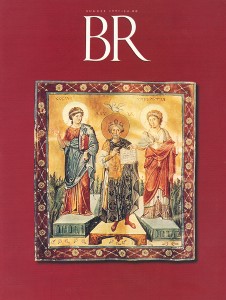
For decades, the Wisdom literature in the Hebrew Bible has been the “poor relation,” living in the shadow of other supposedly more significant biblical genres, such as the Law and the Prophets, as well as the stories in Genesis. Wisdom literature (primarily the books of Proverbs, Ecclesiastes and Job), we are told, is “secular,” intended mainly to educate courtiers and administrators. It has more in common with Egyptian and Mesopotamian Wisdom texts than with Israelite theology, and its concerns have little or nothing to do with the great events of Israel’s salvation history.
More recently, however, Wisdom literature—sapiential literature, scholars call it—is being reevaluated. The renewed interest in it is almost faddish, but well justified, as scholars find new depths to this old Wisdom.
Wisdom (Hebrew
Already a library member? Log in here.
Institution user? Log in with your IP address.

